When Premier League legends describe what it’s like to play at the highest level they usually reduce it to cliché, like you or I would if we were detailing our work environment on any given Monday. Yet what a crazy, high-octane trip it must be to find yourself pitched into a frenetic battle with global superstars on a perfect green pitch, surrounded by thousands of fans willing you to succeed or fail, as a multitude of cameras judge your every brain-scrambled touch of the ball.
For elite players this surreal, adrenaline-charged experience becomes the norm throughout lengthy careers at the top of the game. Perhaps, then, the closest we can come to understanding the reality behind our childhood fantasies is to ask someone who only peered behind the curtain once, making just a single top-flight appearance. To them it was anything but the norm; it was a glimpse into another world that fascinates us all.
A quick point of order is necessary: how odd it is that players with one Premier League appearance routinely have that achievement belittled with an “only” or “just”. I have done this very thing above and, considering it’s the ultimate unattainable adventure for all but a select few, it’s entirely unwarranted. They lived and breathed what the rest of us daydream about at bus stops.
Take Neil Finn who, in the mid-1990s, was West Ham’s youth team keeper playing in the same gifted side that contained Rio Ferdinand and Frank Lampard. Barely out of school, a first team opportunity was little more than a long-term aspiration for Neil until a chain of events led to a sudden and unexpected promotion away at Manchester City on New Year’s Day 1996.
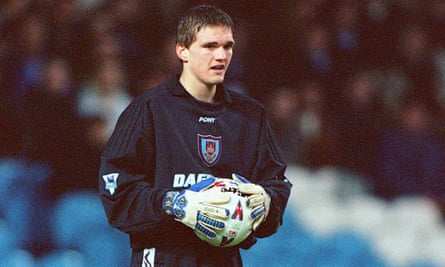
“I was told the day before. Ludek Miklosko got sent off against Everton the previous week so he was suspended and Les Sealey was due to play but he got injured in training,” Finn recalls. I was supposed to travel up as cover but then Frank Lampard Sr rang me. Unbeknown to me, he’d already phoned my parents to tell them I was playing. I was only 17 and three days and been a pro for six months, so it was daunting.
“I’ll never forget walking out. Maine Road was huge and most of the crowd were singing: ‘Who the fucking hell are you?’ But I’ll also never forget the West Ham fans being brilliant and chanting my name pretty much throughout the whole game. They knew I was there because Harry Redknapp had no choice. He’d tried to get an emergency signing but the fella was on a golf course so he couldn’t get hold of him. He had to play me.”
Swamped by Miklosko’s huge jersey, the youngster expected City to fire a barrage of shots on goal. But it was a much tighter encounter than he anticipated and, even though two strikes from Niall Quinn resulted in a home win, the debutant walked off with his head held high.
Finn became the Premier League’s youngest ever player at the time so plenty of media interest inevitably followed. “The Sun and others were phoning up looking for quotes but the club kept me away from all that,” he says. “That was sensible because it’s not like I was the kid playing for AC Milan now. I was thrown in then the next morning I was back to cleaning boots and the dressing room.”
With disarming honesty Finn admits to realising soon after his debut that the highest level would always remain beyond his reach. Instead he takes great pride from a highly successful few years at youth level and a decade of service to Romford FC. The VHS tape of the Manchester City match and the following morning’s newspapers will always be souvenirs to a quite surreal 24 hours.
Andrew Barrowman has also kept the video of his brief taste of top-flight football. In 2004, the young striker made a late appearance off the bench for Birmingham City as they chased a draw at home to Leicester. “I came on for the grand total of eight minutes,” says Barrowman. “I replaced Kenny Cunningham and he was actually the captain so he handed me the armband. There I was, this 17-year-old who didn’t have a clue who to give it to – so for the first minute I’m running about with this armband in my hand.”
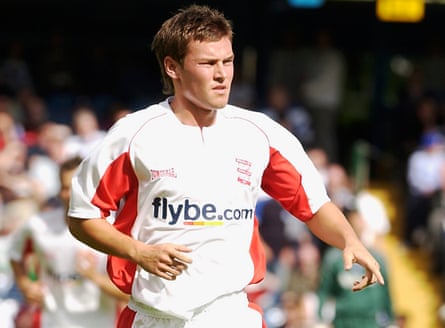
Barrowman had experienced a feisty local clash against Stoke at the Britannia Stadium while on loan to Crewe, so he wasn’t overwhelmed by his surroundings. The lightning pace of the Premier League, though, was another matter entirely.
“Steve Bruce said go and make a name for yourself and I remember my partner up front, Clinton Morrison, was really good with me talking me through the game, but I don’t even remember touching the ball. There were about four up front at the end and it was all-out attack. It was a week after what happened in La Manga and a few of the Leicester players were still in a Spanish jail. So it was quite weird circumstances.”
Further loan spells to Blackpool and Mansfield eventually led to a move back up north for the Scot, who had a successful time at Dundee, among other clubs, before helping Morton to the League One title in 2015. It is only now though, post-retirement, that the enormity of his early achievement has hit home.
“It was only eight minutes but there are millions of boys who dream of doing that,” Barrowman adds. “I’ve done it and no one can take that away from me. I’ve just retired last summer and these are the things you look back on as a proud moment.”
Pride was a word that rightfully came up often when I spoke to players with a solitary Premier League appearance and it’s an emotion not solely reserved to those who soon slipped down the levels. In his six years at Cardiff City, Rhys Weston enjoyed two promotions and several Championship campaigns in addition to winning seven international caps with Wales. Yet he is happy to refer to his 75 minutes for Arsenal away at Newcastle on the final day of the 1999-00 season as “an incredible opportunity I wouldn’t change for the world”.
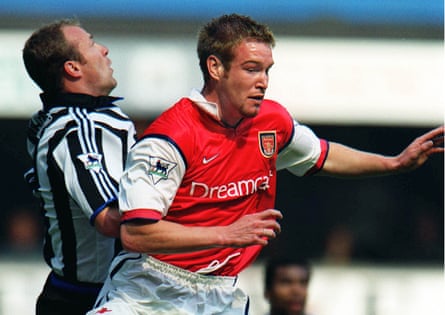
“I eventually came off with cramp,” Weston recalls. “Arsenal had already secured second place in the league so it was a chance to play a couple of the kids. I was terrified. The forward line I was facing was Alan Shearer and Kieron Dyer and I was quite a nervous character I guess so it was a big deal. I think Big Al identified me as a weak link and played against me directly instead of Martin Keown.
“We lost the game 4-2 and Shearer scored an unbelievable free-kick but I didn’t feel out of my depth. I enjoyed it and my overriding memory is that it was an amazing experience. I would have loved to have played more.”
Twelve months earlier 21-year-old Steve Melton was thrown into the deep end at the season’s finale as Nottingham Forest signed off on a miserable campaign by hosting Martin O’Neill’s Leicester City. Having come through the ranks at the City Ground, this was a long-anticipated introduction for the midfielder, yet elsewhere it was an afternoon for departures as Forest prepared for life in the Championship while Ron Atkinson bid farewell to 28 years of management.
“It was a little bit sombre because it was only that midweek where another result confirmed we were down but this was a local derby so the fans were still up for the game,” Melton explains. “It was a sunny day and Leicester filled the away end.”
Having been told just three hours before kick-off that he was starting, there was little time for nerves. Instead, Melton had to put the thought that he was fulfilling his lifetime ambition to one side and focus on facing the formidable trio of Neil Lennon, Muzzy Izzet and Robbie Savage.
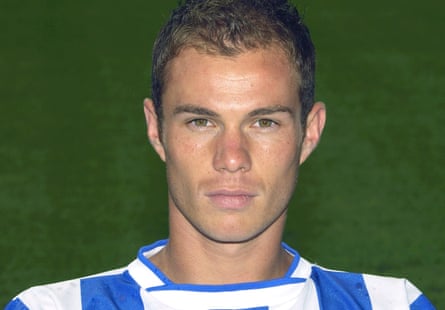
“It felt like you always had to be on your toes and not lose the ball because any mistakes would be punished,” he adds. “We played 4-4-2 and I was in the middle with Chris Bart-Williams. I was previously his boot boy so we’d always had a decent relationship. He looked after me that day and because we were outnumbered we had to be disciplined and not lose our shape. Chris talked to me throughout telling me I was good enough and to just play my usual game.
“It wasn’t the greatest of free-flowing games but there were a couple of passages of play where I did some one-twos and Ron got out of the dugout and clapped. There was a pass late on too that created a chance we really should have scored from – I slipped it to the wide-man, who got there just before it went out of play and knocked it across where my best mate Marlon Harewood missed a sitter.”
Despite Harewood’s miss, Forest went on to win 1-0, capping off a memorable afternoon for Melton. Unfortunately, an injury the following season ended his hopes of establishing himself at the club he had represented since the age of 11. He enjoyed spells at Stoke and Brighton before two years with Hull, where he has the honour of being the first ever goalscorer at the KCOM Stadium. But those 90 minutes in the May sunshine at the City Ground will always remain a cherished memory.
“The reality was that I peaked at that point,” he says. “OK, I ‘only’ played once, but when you drop through the leagues you’re against players who have never experienced the Premier League. I got a bit of micky-taking if I ever tried something – ‘oh yeah you played once in the Premier League did you’ – and I’d give it back and say ‘well that’s one more time than you’.”
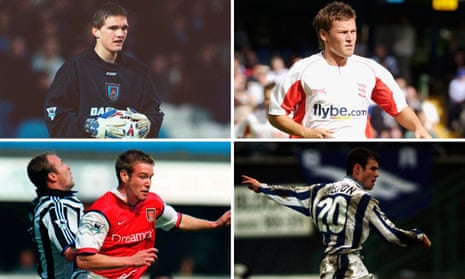
Comments (…)
Sign in or create your Guardian account to join the discussion